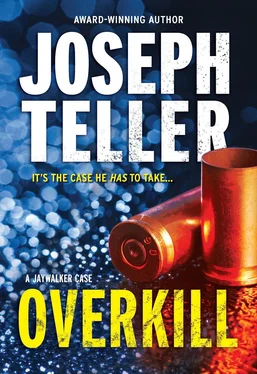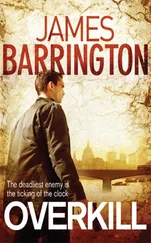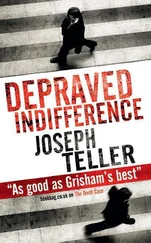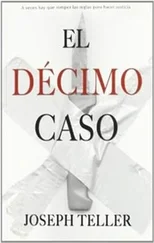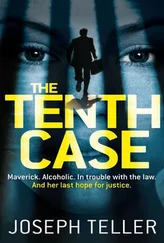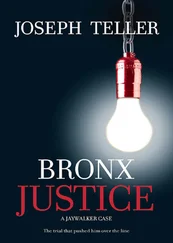Joseph Teller - Overkill
Здесь есть возможность читать онлайн «Joseph Teller - Overkill» — ознакомительный отрывок электронной книги совершенно бесплатно, а после прочтения отрывка купить полную версию. В некоторых случаях можно слушать аудио, скачать через торрент в формате fb2 и присутствует краткое содержание. Жанр: Криминальный детектив, на английском языке. Описание произведения, (предисловие) а так же отзывы посетителей доступны на портале библиотеки ЛибКат.
- Название:Overkill
- Автор:
- Жанр:
- Год:неизвестен
- ISBN:нет данных
- Рейтинг книги:3 / 5. Голосов: 1
-
Избранное:Добавить в избранное
- Отзывы:
-
Ваша оценка:
- 60
- 1
- 2
- 3
- 4
- 5
Overkill: краткое содержание, описание и аннотация
Предлагаем к чтению аннотацию, описание, краткое содержание или предисловие (зависит от того, что написал сам автор книги «Overkill»). Если вы не нашли необходимую информацию о книге — напишите в комментариях, мы постараемся отыскать её.
Overkill — читать онлайн ознакомительный отрывок
Ниже представлен текст книги, разбитый по страницам. Система сохранения места последней прочитанной страницы, позволяет с удобством читать онлайн бесплатно книгу «Overkill», без необходимости каждый раз заново искать на чём Вы остановились. Поставьте закладку, и сможете в любой момент перейти на страницу, на которой закончили чтение.
Интервал:
Закладка:
Jaywalker hardly spent the intervening months sitting back and enjoying the passage of time. In the buildup to a trial, sitting back became all but constitutionally impossible for him. To be sure, he didn’t focus on Jeremy’s case to the exclusion of everything else. There were other cases to attend to, and even a couple of trials. But they were lesser trials. One was a bench trial, a non-jury affair over whether a client named Adam Williams had known that the suitcase he’d found in an alley and decided to claim as his own had been stolen property. It had indeed been stolen, as Jaywalker readily conceded, but Adam had had no way of knowing that; to him it appeared to have been discarded, abandoned. A judge reluctantly agreed, but not before delivering a stern lecture to Adam on how foolish he’d been to pick the thing up and carry it off, and how lucky he’d been to find a good lawyer. The other case Jaywalker tried to a jury, but a jury of six, not twelve. That was all you were entitled to on a misdemeanor, and drunk driving was a misdemeanor. The officers claimed that Tammy Cuccinotta had blown a.15 on the station house breathalyzer test, nearly double the.08 required for a conviction. Jaywalker put her on the stand, where she claimed the cops had fabricated the result after she’d threatened to sue them for false arrest. The jurors didn’t actually buy that, they confided to Jaywalker afterwards; their acquittal actually had more to do with liking Tammy, a single working mother of three young children, and also liking the short skirts she wore to court each day. This time Jaywalker delivered the lecture.
But he learned from those trials, just as he took something home from every case he tried. From Adam Williams he was reminded anew that reality wasn’t everything; it was sometimes the defendant’s perception of reality that mattered. And from Tammy Cuccinotta he received a refresher course in just how absolutely crucial it was that jurors found a defendant likeable . Now, if he could just find a short skirt in a men’s medium….
And, of course, Jaywalker continued to work on Jeremy’s case. He reported back to Katherine Darcy that there would be no manslaughter plea. He spent more hours over more visits with Jeremy than he could count. He mined Carmen’s and Julie’s memories for details of how Jeremy had acted during the summer of his ordeal. He had a pathologist friend of his go over the autopsy report line by line in case he himself had missed something (he hadn’t), and coaxed an old chemistry major friend into attempting to quantify the exact amount of opiates present in a sample of Victor Quinones’s blood (he couldn’t). He tapped a private investigator who owed him a favor, and sent him out to find and interview Teresa Morales. But after a month of searching, the guy reported back that Teresa was nowhere to be found.
“She’s not in jail and she’s not in the neighborhood,” he told Jaywalker. “She doesn’t have a driver’s license, a Social Security number, a Medicaid card or a credit card. She doesn’t work on the books, vote at election time or own a cell phone. And she doesn’t have a criminal record. Are you sure she exists?”
“She exists,” said Jaywalker, and sent the investigator back out to find her. But he never did.
Jaywalker checked in so regularly with Frankie the Barber in Puerto Rico that the phone company threatened to cut off his long-distance service. “You do that,” Jaywalker warned the representative, “and I’ll sic Alan Fudderman on you.”
“Who?”
He met once more with Miranda, to help her with the documents she needed to get her onto Rikers Island to visit Jeremy. But he charged her for the service, after a fashion. Before allowing her to leave, he snapped a half dozen photos of her. “Just in case the jury never gets to meet you in person,” he explained, “I want them to see the face that launched a thousand ships.” If he’d thought for a moment there was any chance they still read Homer in high school, her blank stare was answer enough.
And each time they went back to court, Harold Wexler would warn Jeremy that he was making a big mistake in turning down the manslaughter plea. “Your lawyer’s good,” he’d say, “but he’s not that good.”
And each time Jeremy would smile sheepishly, shake his head slowly from side to side and say softly, “I’d like a trial.”
“Wonderful,” Wexler told him on the last such occasion. “You just keep on taking advice from all those jailhouse lawyers on Rikers Island. Don’t stop to ask yourself why, if they’re all so smart, they’re still there.”
“I’d like a trial,” said Jeremy.
“Then a trial you shall have. February second. That’s a date absolutely certain for trial. Do I make myself clear?”
Both lawyers assured him he had. But as Jaywalker left the courtroom to visit once more with Jeremy in the pens, the word clear kept echoing in his head. It was the same word he’d heard shouted back when his wife’s heart had stopped beating toward the very end and they’d called a code. A dozen hospital personnel had rushed into the room, pushing him aside and reducing him to a bystander. They’d ripped her gown open, slammed the paddles onto her chest and shouted “Clear!” They’d managed to save her that time, but the experience had taught Jaywalker that there would be no second time, or third or fourth.
Goddamn you, Harold Wexler, he thought, for having yanked him back in time to a memory he’d done his best to keep buried for a dozen years. But if ever there’d been a judge who knew how to push Jaywalker’s buttons, Wexler was the one. There were others who were tougher and plenty who were meaner, but their heavy-handedness invariably gave them away on the printed page and got them reversed on appeal. Wexler was smart enough to cover himself, to get away with tilting the playing field in whatever direction he wanted. And from his long-running commentary, it was pretty clear that what he wanted in Jeremy’s case was going to make it a steep climb for the defense. But that was okay. As much as he preferred working with a judge who had no agenda, Jaywalker relished the occasional street brawl. It got his adrenaline pumping, his juices flowing. It got him angry.
And right then and there, standing in front of an eleventh-floor feeder pen at 10 °Centre Street, he looked upward toward the heavens-which on this particular day bore a striking resemblance to peeling yellow paint-and silently vowed to his wife that even if it turned out to be the last case he ever tried, he was going to win it, not just for Jeremy, but for her.
Then he broke out laughing at the absurdity of it.
Well, he still had a whole week to get angry again.
12
“Jurors entering!”
With those two words the trial of the People of the State of New York versus Jeremy Estrada got under way. No “Hear ye, hear ye, hear ye.” No “Draw nigh, give your attention, and you shall be heard.” Not in Harold Wexler’s court. About the only concession to ritual that Wexler made was the black robe he wore from time to time. Other judges circulated detailed written rules of decorum, banged their gavels, raised their voices and threatened to clear their courtrooms at the slightest disruption. Wexler simply peered out over rimless reading glasses, his shoulders hunched slightly forward, his jaw set tightly in a withering stare. Rumor had it that back in his Legal Aid days he’d punched out his immediate supervisor, a guy who’d outweighed him by fifty pounds and stood five inches taller than he did. Jaywalker happened to have been there at the time and knew it was no rumor.
Читать дальшеИнтервал:
Закладка:
Похожие книги на «Overkill»
Представляем Вашему вниманию похожие книги на «Overkill» списком для выбора. Мы отобрали схожую по названию и смыслу литературу в надежде предоставить читателям больше вариантов отыскать новые, интересные, ещё непрочитанные произведения.
Обсуждение, отзывы о книге «Overkill» и просто собственные мнения читателей. Оставьте ваши комментарии, напишите, что Вы думаете о произведении, его смысле или главных героях. Укажите что конкретно понравилось, а что нет, и почему Вы так считаете.
